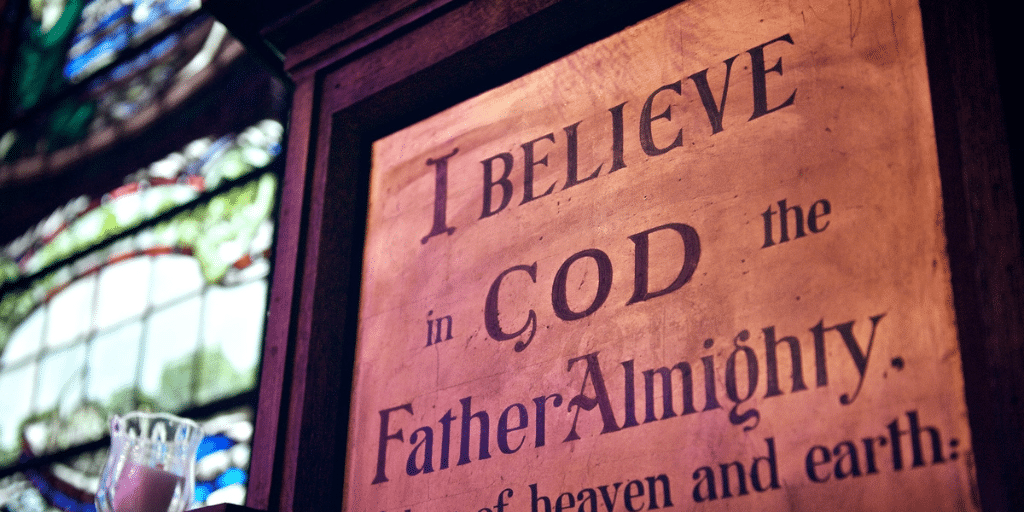The Apostles’ Creed: I Believe in God…Almighty

Almighty God, the El Shaddai. The God referenced in the Apostles’ Creed is truly not like any other god. Albert Mohler explains,
In the Apostles’ Creed the word Almighty is a collective that is meant to represent all God’s attributes, the fullness of God’s perfections. All God’s attributes—omnipotence, omniscience, omnipresence, self-existence, and immutability—are summed up in this one word, Almighty. Only the God who possesses the fullness of perfection and infinite majesty can truly be almighty and sovereign over creation.[1]
Of course, atheists mock those who claim to worship an “almighty” God by asking, “Can God make a rock so heavy he can’t lift it?” Surely this is an insurmountable problem if you believe there is “nothing that God cannot do!” But is it? Not so fast!
God’s omnipotence means that God has power to do all that is intrinsically possible, not the intrinsically impossible. God cannot make a triangle with four sides or any propositional absurdity. Not because God’s power meets a limit but because nonsense remans nonsense even if we preface it with the question, “Can God…?” [See C.S. Lewis, The Problem of Pain, p. 48]. Word games aside, God can do all that is proper and fitting for an omnipotent being. The only limit to his power is the contours of his character and the consistency of his nature.[2]
Another objection that is raised is why, if God is “almighty,” there is still evil in the world? Again, there is an answer. As J.I. Packer explains, “…does not the existence of evil—moral badness, useless pain, and waste of good—suggest that God the Father is not almighty after all, for surely he would remove these things if he could? Yes, he would, and he is doing so![3]
Packer continues, “If God moves more slowly than we wish in clearing evil out of his world and introducing the new order, that, we may be sure, is in order to widen his gracious purpose and include in it more victims of the world’s evil than otherwise he might have done (2 Pet 3:3-10).”[4]
So, be patient. Trust that God knows what He’s doing. Trust that He knows the final chapter. Trust that He is walking beside us as we “press on toward the goal for the prize of the upward call of God in Christ Jesus!” (Philippians 3:14). Trust that He is able to do all that He has promised.
This is what the Sovereign Lord says: None of my words will be delayed any longer; whatever I say will be fulfilled, declares the Sovereign Lord. (Ezekiel 12:28)
[1] R. Albert Mohler, The Apostles’ Creed (Thomas Nelson: Kindle Edition), pp. 10-11.
[2] Michael F. Bird, What Christians Ought to Believe (Zondervan Academic: Kindle Edition), p. 67, emphasis added.
[3] J.I. Packer, Affirming the Apostles’ Creed (Crossway: Kindle Edition), p. 48, emphasis added.
[4] Ibid., p. 48.







